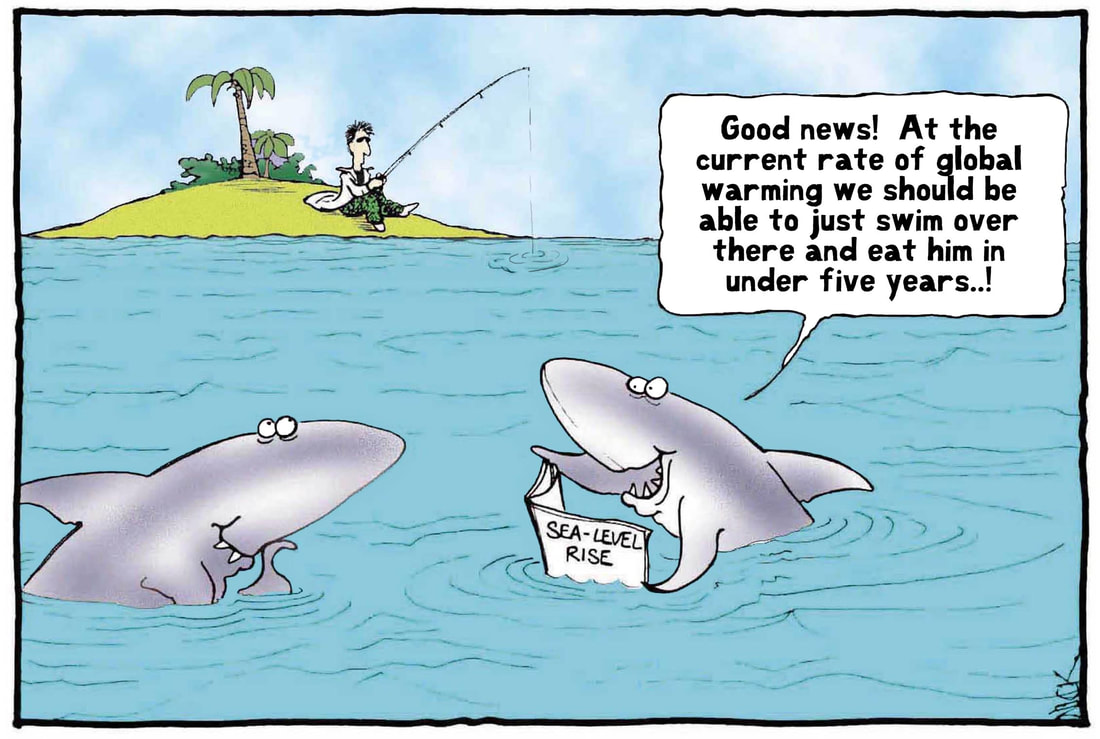Sea Level rise
|
Sea level rise is the increasing of the average global sea level. It doesn’t mean that seas are higher by the same amount everywhere. In fact, in some areas, such as the west coast of the US, sea level has actually dropped slightly … for now. But before we get into that, let’s understand the main contributors to sea level rise:
|
|
